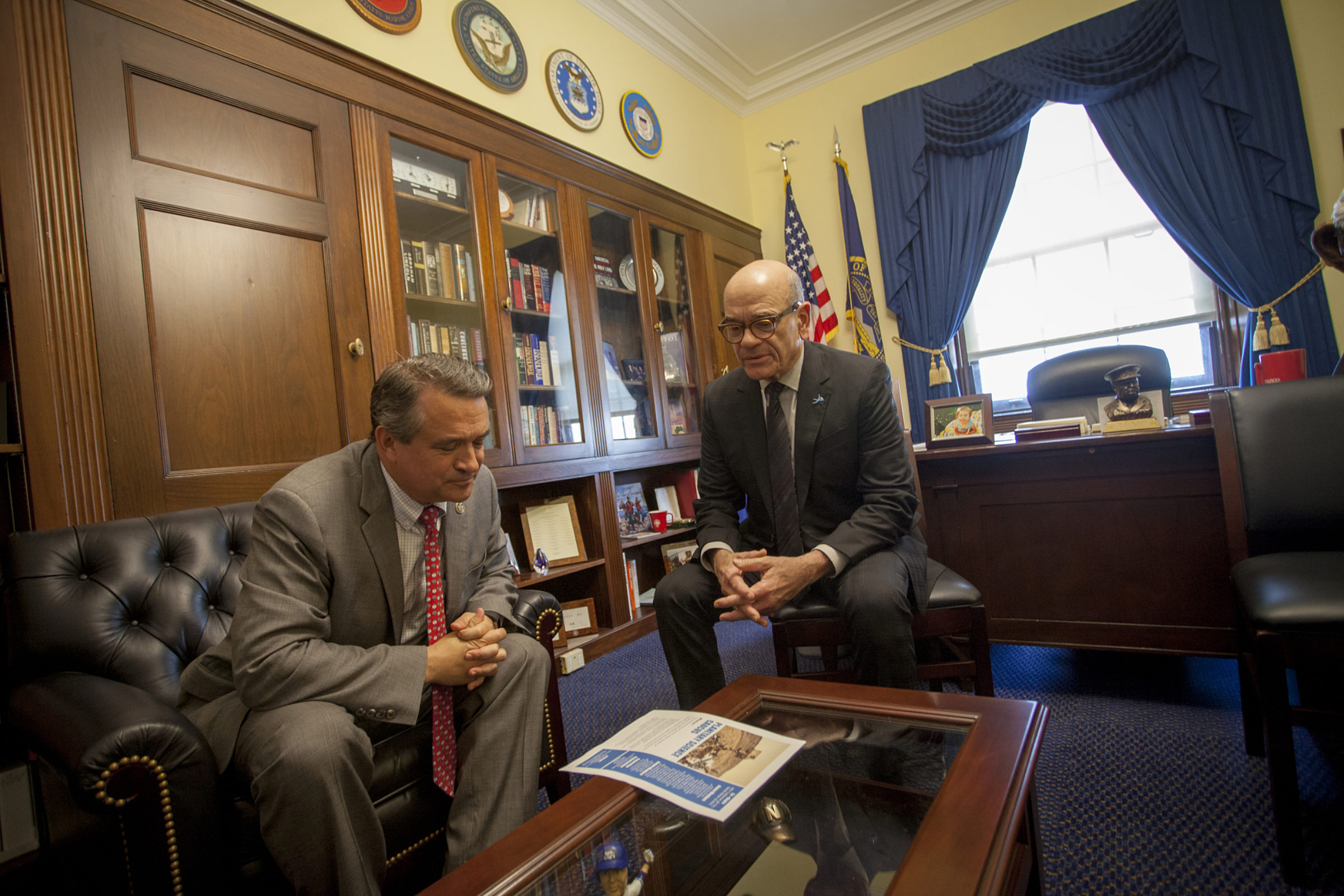Robert Picardo • Jul 20, 2018
Boldly advocating for more space science
Earlier this year, I had the chance to attend the launch of the Planetary Science Caucus in Washington D.C. For those of you that are not already familiar with the caucus, it’s a bipartisan coalition of members of Congress that have pledged to support the advancement of space science and exploration within the U.S. Congress.
Even though the caucus is only a few months old, it’s already the most active and influential space-focused coalition in Congress—and I’m proud to say The Planetary Society played a major role in putting it together.
After attending the inaugural event, and having great conversations with Members of Congress and key staffers, I knew our work had just begun. As a proud member of the Planetary Society’s board of directors, I volunteered to burn some shoe leather on Capitol Hill with our advocacy team. (Note to the follicularly challenged: wear a hat!)
I’ve come to understand that the effectiveness of a Congressional caucus boils down to three important factors: How many members do you have? Is that membership bipartisan? And do those members stay engaged over time?
With that in mind, I set a goal for my first advocacy effort: recruit two new members to the caucus, one Republican and one Democrat.

First, I stopped by the office of Congressman Don Beyer (D-VA). Congressman Beyer is a member of the House Committee on Science Space and Technology, and more importantly, a member of the Space Subcommittee. Congressman Beyer was familiar with TPS from previous chats with our CEO Bill Nye, but this was his first chance to hear about the new caucus. We talked through the objectives, explained TPS’s role as the original supporting organization, and he agreed to join (after saying “ Why am I not already a member?”)
Next we were off to the office of Congressman Don Bacon (R-NE). Congressman Bacon isn’t on the Space Subcommittee, or even the full Science Committee. However, NASA does spend about $1.6 million dollars a year in his district, and as a retired Air Force General we were betting that this wouldn’t be the first time that he’d come across some of the issues that the caucus focuses on.

In Congressman Bacon’s office I was particularly pleased to spend some time getting to know a few members of his staff, some of whom had worked on space situational awareness issues as active duty members of the Air Force. I learned about several of the satellite missions that they had worked on, and gave them my best elevator pitch on the Planetary Society as a force for good on Capitol Hill.
My conversation with Congressman Bacon went as well as my recruitment pitch earlier in the day. We discussed his personal passion and interest in space science, and he acknowledged the important role that NASA plays in his district by making major investments in research and development. After learning about the caucus, he eagerly agreed to join.
In Congressman Bacon’s office I was particularly pleased to spend some time getting to know a few members of his staff, some of whom had worked on space situational awareness issues as active duty members of the Air Force. I learned about several of the satellite missions that they had worked on, and gave them my best elevator pitch on the Planetary Society as a force for good on Capitol Hill.
Congressman Bacon couldn’t have been more gracious. We discussed his personal interest in space science and how he viewed space as a “win-win”. He acknowledged the important role that NASA plays in his district by making major investments in research and development. After learning about the caucus, he eagerly agreed to join.
We got two new members of the caucus, one from each side of the aisle, bringing our total membership to an impressive 32 members of Congress. After batting 1000 on my “maiden voyage,” you can bet I’ll be back this fall for another caucus event, ensuring that everyone that’s on board stays engaged and up to date on the latest issues.
Membership, bipartisanship and engagement: all three boxes checked. Having this infrastructure is so important, especially during the time of the year when NASA’s budget is being debated in Congress. Every member of The Planetary Science Caucus will play an important role in demonstrating the constituency that exists in Congress around providing robust funding for NASA, and especially for planetary science.
If you’re looking to get a better understanding of how the mechanics of all that works, I highly recommend checking out our “Space Policy 101” course. It helped me prepare for my day on Hill, and understand the importance of individual advocacy.
Until next time, space friends.



 Explore Worlds
Explore Worlds Find Life
Find Life Defend Earth
Defend Earth

